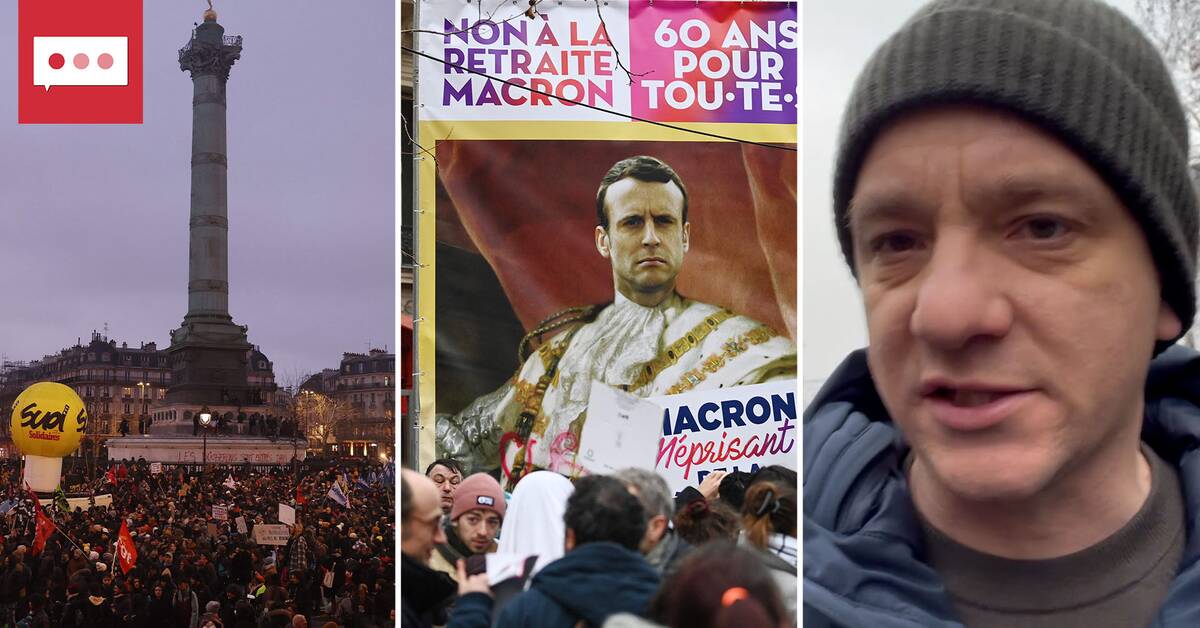Large parts of Paris public transport have, just like train traffic throughout France, been at a standstill on Thursday.
Every third public employee has been taken out on strike.
On the television channel France 2, reruns are rolling and on the radio the broadcasts are filled with music, as many media employees have also stopped working.
Parts of the country's education system are also closed.
The retirement age is raised from 62 to 64 years
The pension reform, which was presented last week, means that the retirement age for most people in the country will be raised from 62 to 64.
According to opinion polls, around two-thirds of the French oppose the change – despite the fact that the French retirement age is already one of the lowest in Europe.
France's unions are behind Thursday's mass mobilization with over 200 demonstrations across the country.
It is the first time that the unions have made a common cause in twelve years - that time it was also about the retirement age, which was then raised from 60 to 62 years.
But the protests do not bite President Emmanuel Macron.
At a press conference, he says, as before, that the reforms are necessary to save the entire pension system.
- We will implement the changes respectfully and in dialogue with all parties, but also decisively and responsibly.
Hoped for a million protesters
Macron, who is in Barcelona for a Franco-Spanish summit, said he hoped the demonstrations could remain calm "without exaggeration, violence and destruction".
Meanwhile, police in riot gear battled stone-throwing protesters in Paris.
However, no major injuries have been reported.
Unions said ahead of Thursday that more than a million protesters were expected in more than 200 cities around France.
On Thursday evening, Le Monde reported that the number of protesters, according to French Interior Minister Gérald Darmanin, was even higher than that – 1.12 million, including around 80,000 in Paris.

